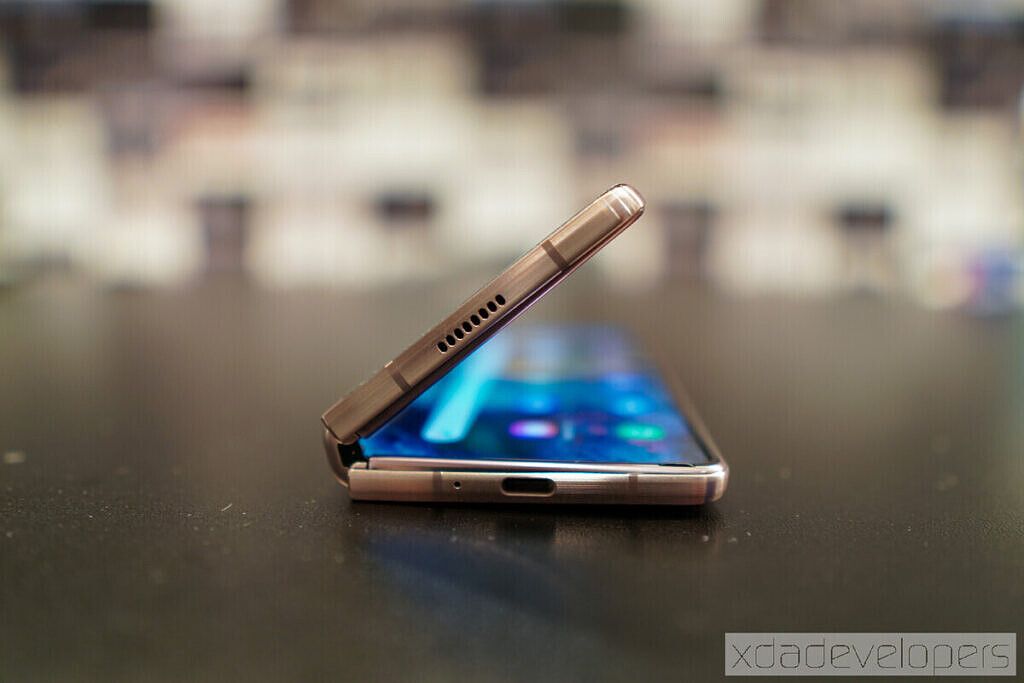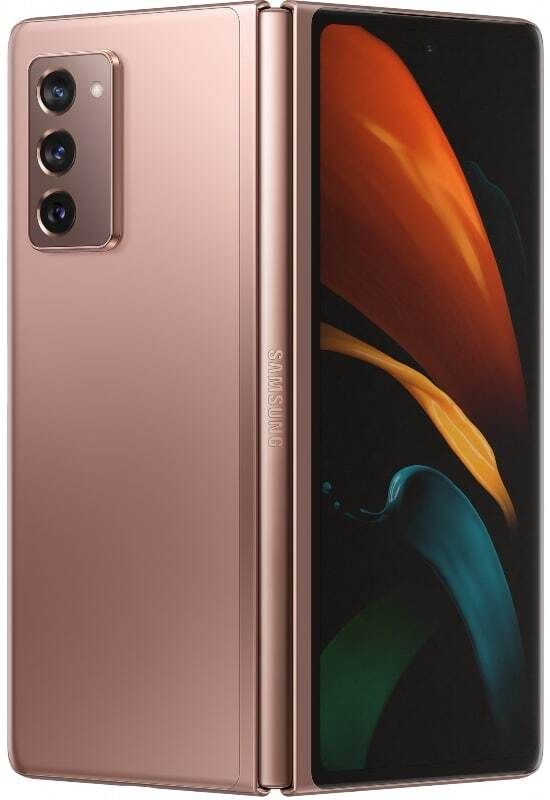When the original Galaxy Fold began malfunctioning in the hands of major reviewers in April 2019, it seemed like Samsung’s vision of a foldable future had crashed before it could even start. But a relatively problem-free relaunch six months later, followed by the successful launch of a second foldable device, put Samsung back on track. Now, with the Galaxy Z Fold 2, Samsung’s making a strong case that the foldable form factor is not just here to stay, but should be the next evolution of smartphones.
Samsung Galaxy Z Fold 2 specifications (click to reveal the specs)
| Specification | Samsung Galaxy Z Fold 2 |
|---|---|
| Dimensions & Weight |
|
| Display |
|
| SoC | Qualcomm Snapdragon 865 Plus:
Adreno 650 (10% overclock) |
| RAM & Storage | 12GB LPDDR5 + 256GB UFS 3.1 |
| Battery & Charging |
|
| Fingerprint sensor | Side-mounted fingerprint scanner |
| Rear Camera |
|
| Front Camera |
|
| Other Features |
|
| Android Version | Android 10 with One UI |
Almost every issue (except for perhaps water resistance) that I and many other reviewers/consumers had with the original Fold is resolved with the Galaxy Z Fold 2. The outside “cover screen” is much larger; the inside screen got rid of the unsightly notch, and the hinge feels significantly more sturdy. There are also improvements in multitasking, closer partnerships with Google and Microsoft to optimize the experience, and further enhancements to the whole experience.

Galaxy Z Fold (left) vs Galaxy Fold (right)
That first change is the most crucial, in my opinion. As someone who writes and read on my phone often, I enjoyed using the Fold as my daily driver, but the 4.5-inch cover screen always felt too cramped, mainly when typing. It was a device I felt like I had to unfold to get real work done.
The Galaxy Z Fold 2’s 6.2-inch cover screen, because it feels much closer to a typical phone screen size, makes it easier to use, thus reducing the need to unfold the device every time. But you’ll want to unfold it whenever you have the chance because the inside screen is stunning: a 7.6-inch Samsung AMOLED panel with all the vivid colors and vibrant contrast that we expect from a Samsung flagship. The internal screen supports 1768 x 2208 pixels resolution and 120Hz refresh rate, while the external cover display features 816 x 2260 pixels resolution and 60Hz refresh rate.

The multitasking and typing experience on the Galaxy Z Fold 2
The same multitasking system from the first Fold returns, but everything feels more fluid and zippy. You can run up to three apps on the screen at once in split-view, and you can adjust orientation on the fly: for example, have two apps show vertically side-by-side or horizontally on top of each other. You can also drag and drop files and photos between native Samsung apps and Microsoft apps, for example, a photo from the gallery to Microsoft Outlook or Samsung’s messaging app.

The new hinge lets you stop it at any angle
Another significant upgrade is the improved hinge, which, just like on the Z Flip, can now keep a partially folded angle. Samsung calls this “Flex Mode,” and it brings several new use cases, such as hands-free video calls or photo taking. Unlike the first Galaxy Fold, the hinge also feels far more refined and reliable, and the differences between the first and second generation Folds are immediately noticeable.

Samsung developed some new UI tricks to accommodate this new Flex Mode; certain apps will jump into a split view as soon as it’s partially folded. For example, in the YouTube app, you get a full-screen video when the device is opened all the way. But fold the device slightly, and the video jumps to the top half of the screen, with the bottom half showing video comments; other suggested videos, etc. While a marked improvement on the Galaxy Fold, it’s not 100% perfect as more apps need to be optimized to take full advantage of the real estate. For example, the Kindle app doesn’t allow you to display the pages in two individual columns split across the screen; instead, it’s full-screen only).
Another feature that makes a lot of sense given the phone’s form factor: you can take selfies using the primary camera system, with the cover screen as a camera viewfinder. Borrowed from the Galaxy Z Flip, it’s a nice improvement to have, especially as the dual selfie camera on the inside has been replaced with a single pinhole camera.

I didn’t get a chance to test the cameras, but the main system consists of a trio of 12-megapixel sensors, offering the usual wide, ultrawide, telephoto focal lengths. The latter camera can only do 2X optical zoom as opposed to 3X and 5X of the Note 20 and Ultra, respectively. Still, I suppose the foldable form factor made putting the latest camera components difficult. Still, I expect camera performance to be on par with the Galaxy Note 10 or Galaxy S20. Is the Galaxy Z Fold 2 going to have the best smartphone camera around? It almost certainly will not, but it should be good enough. Chances are, the camera isn’t the main reason you are buying a Galaxy Z Fold 2.
Unlike last year where some regions got 5G, and others got 4G, this year, all devices support 5G. You’ll also get the Snapdragon 865 Plus processor regardless of where you buy the Galaxy Z Fold 2; there’s no Snapdragon-Exynos split like on previous Samsung smartphones. There’s 12GB of RAM and either 256GB or 512 of storage, and it isn’t great to see Samsung half the base storage of the Galaxy Fold.

Ultimately, Samsung delivered the changes that were needed most. After just an hour with the device, I already know I want it as my daily driver, and barring an unlikely surprise from Apple or Huawei later this year, the Galaxy Z Fold 2 is shaping up to be my favorite phone of the year. It’s one of the most expensive devices of the year, but at $1,999, it’s only $20 more than the original Galaxy Fold despite the vast number of improvements it brings.
- If you want to save a bundle on your unlocked Galaxy Z Fold 2 and have a recent phone, Samsung's trade-in offer is the best. You can get up to $650 credit and if you have the original Z Flip or Galaxy Fold, you can save $800 on your new Galaxy Z Fold 2!
You might also like:
- Best Galaxy Z Fold 2 deals
- Everything you need to know about the Galaxy Z Fold 2
- Official Galaxy Z Fold 2 Forum
The post Samsung Galaxy Z Fold 2 Hands on: Probably my favorite phone of the year appeared first on xda-developers.
from xda-developers https://ift.tt/2Goit8r
via IFTTT


No comments:
Post a Comment